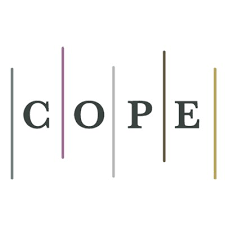The relationship between management ability and investment opportunities with an emphasis on the role of political connection
DOI:
https://doi.org/10.52547/ijimes.1.1.65DOR:
https://dorl.net/dor/20.1001.1.27832678.2021.1.1.5.5Keywords:
Management Ability, Investment Opportunities, Political ConnectionAbstract
Purpose: With the expansion of the quality level of activity as well as the widespread development of economic affairs, financial and investment decisions are among the most complex issues that arise in order to obtain the best return and desirability in the best conditions. In this regard, financial managers, given the primary responsibility for these decisions, seek to establish relationships between the factors of the firms in the firm, including investment opportunities. The purpose of this paper is to examine the relationship between management ability and political connection with investment opportunities. The QT ratio and market to book ratio (MTB) are used to measure corporate investment opportunities.
Methodology: Corporate political connection is defined by Fasio's political cost variables and the use of the TOPSIS multi-criteria decision-making models and the Shannon entropy weighting method. In order to test the hypotheses, 116 companies listed in Tehran Stock Exchange during the period 2014-2019 were selected for the sample.
Findings: The results of the analysis using the generalized least squares hybrid regression (GLS) method indicate that there is a significant and positive relationship between management ability and investment opportunities in Tehran Stock Exchange companies. There is a negative and significant relationship between political connection and investment opportunities. The political connection also does not affect the relationship between management ability and investment opportunities.
Originality/Value: The purpose of this paper is to examine the relationship between management ability and political connection with investment opportunities. The QT ratio and market to book ratio (MTB) are used to measure corporate investment opportunities.
Downloads
References
Aoun, D., & Hwang, J. (2008). The effects of cash flow and size on the investment decisions of ICT firms: A dynamic approach. Information economics and policy, 20(2), 120-134. doi: https://doi.org/10.1016/j.infoecopol.2007.12.001
Lee, C. C., Wang, C. W., Chiu, W. C., & Tien, T. S. (2018). Managerial ability and corporate investment opportunity. International Review of Financial Analysis, 57, 65-76. doi: https://doi.org/10.1016/j.irfa.2018.02.007
Graham, J. R., Harvey, C. R., & Puri, M. (2013). Managerial attitudes and corporate actions. Journal of financial economics, 109(1), 103-121. doi: https://doi.org/10.1016/j.jfineco.2013.01.010
Andreou, P. C., Ehrlich, D., & Louca, C. (2013, January). Managerial ability and firm performance: Evidence from the global financial crisis. In European Financial Management Association, Annual Conference.
Ghahremani Nahr, J., Pasandideh, S. H. R., & Niaki, S. T. A. (2020). A robust optimization approach for multi-objective, multi-product, multi-period, closed-loop green supply chain network designs under uncertainty and discount. Journal of industrial and production engineering, 37(1), 1-22. doi: https://doi.org/10.1080/21681015.2017.1421591
Piotroski, J. D., & Zhang, T. (2014). Politicians and the IPO decision: The impact of impending political promotions on IPO activity in China. Journal of Financial Economics, 111(1), 111-136. doi: https://doi.org/10.1016/j.jfineco.2013.10.012
Pan, X., & Tian, G. G. (2020). Political connections and corporate investments: Evidence from the recent anti-corruption campaign in China. Journal of Banking & Finance, 119, 105108. doi: https://doi.org/10.1016/j.jbankfin.2017.03.005
Houston, J. F., Jiang, L., Lin, C., & Ma, Y. (2014). Political connections and the cost of bank loans. Journal of Accounting Research, 52(1), 193-243. doi: https://doi.org/10.1111/1475-679X.12038
Faccio, M. (2006). Politically connected firms. American economic review, 96(1), 369-386. doi: 10.1257/000282806776157704
Ghahremani-Nahr, J., Nozari, H., & Bathaee, M. (2021). Robust Box Approach for Blood Supply Chain Network Design under Uncertainty: Hybrid Moth-Flame Optimization and Genetic Algorithm. International Journal of Innovation in Engineering, 1(2), 40-62.
Faccio, M. (2010). Differences between politically connected and nonconnected firms: A cross- country analysis. Financial management, 39(3), 905-928. doi: https://doi.org/10.1111/j.1755-053X.2010.01099.x
Hassan, T., Kabir Hassan, M., Mohamad, S., & Chaw Min, C. (2012). Political patronage and firm performance: Further evidence from Malaysia. Thunderbird International Business Review, 54(3), 373-393. doi: https://doi.org/10.1002/tie.21468
Gul, F. A., & Kealey, B. T. (1999). Chaebol, investment opportunity set and corporate debt and dividend policies of Korean companies. Review of Quantitative Finance and Accounting, 13(4), 401-416. doi: https://doi.org/10.1023/A:1008397808221
Ghahremani-Nahr, J., Nozari, H., & Najafi, S. E. (2020). Design a green closed loop supply chain network by considering discount under uncertainty. Journal of Applied Research on Industrial Engineering, 7(3), 238-266. doi: 10.22105/jarie.2020.251240.1198
Jones, S., & Sharma, R. (2001). The association between the investment opportunity set and corporate financing and dividend decisions: some Australian evidence. Managerial Finance, 27(3), 48-64. doi: https://doi.org/10.1108/03074350110767097
Myers, M. D., & Young, L. W. (1997). Hidden agendas, power and managerial assumptions in information systems development: an ethnographic study. Information Technology & People. doi: https://doi.org/10.1108/09593849710178225
Demerjian, P., Lev, B., & McVay, S. (2012). Quantifying managerial ability: A new measure and validity tests. Management science, 58(7), 1229-1248. doi: https://doi.org/10.1287/mnsc.1110.1487
Demerjian, P. R., Lev, B., Lewis, M. F., & McVay, S. E. (2013). Managerial ability and earnings quality. The accounting review, 88(2), 463-498. doi: https://doi.org/10.2308/accr-50318
Chemmanur, T. J., Paeglis, I., & Simonyan, K. (2009). Management quality, financial and investment policies, and asymmetric information. Journal of Financial and Quantitative Analysis, 44(5), 1045-1079. doi: https://doi.org/10.1017/S0022109009990299
Siao, W. S., & Chou, T. K. (2013). Does managerial ability improve value of cash holdings. Working Paper.
Bertrand, M., & Schoar, A. (2003). Managing with style: The effect of managers on firm policies. The Quarterly Journal of Economics, 118(4), 1169-1208. doi: https://doi.org/10.1162/003355303322552775
Koester, A., Shevlin, T., & Wangerin, D. (2016). The role of managerial ability in corporate tax avoidance. Management Science, 63(10), 3285-3310. doi: https://doi.org/10.1287/mnsc.2016.2510
Chemmanur, T. J., Paeglis, I., & Simonyan, K. (2010). Management quality and equity issue characteristics: a comparison of SEOs and IPOs. Financial Management, 39(4), 1601-1642. doi: https://doi.org/10.1111/j.1755-053X.2010.01124.x
Lin, C., Lin, P., Song, F. M., & Li, C. (2011). Managerial incentives, CEO characteristics and corporate innovation in China’s private sector. Journal of Comparative Economics, 39(2), 176-190. doi: https://doi.org/10.1016/j.jce.2009.12.001
Ghahremani Nahr, J. (2020). Improvement the efficiency and efficiency of the closed loop supply chain: Whale optimization algorithm and novel priority-based encoding approach. Journal of Decisions and Operations Research, 4(4), 299-315. doi: 10.22105/dmor.2020.206930.1132
Boubakri, N., Guedhami, O., Mishra, D., & Saffar, W. (2012). Political connections and the cost of equity capital. Journal of Corporate Finance, 18(3), 541-559. doi: https://doi.org/10.1016/j.jcorpfin.2012.02.005
Moses, O. D. (1987). Income smoothing and incentives: Empirical tests using accounting changes. Accounting Review, 358-377.
Lin, T. J., Chang, H. Y., Yu, H. F., & Kao, C. P. (2019). The impact of political connections and business groups on cash holdings: Evidence from Chinese listed firms. Global Finance Journal, 40, 65-73. doi: https://doi.org/10.1016/j.gfj.2018.10.001
Deng, K., Zeng, H., & Zhu, Y. (2019). Political connection, market frictions and financial constraints: evidence from China. Accounting & Finance, 59(4), 2377-2414. doi: https://doi.org/10.1111/acfi.12301
Chaney, P. K., Faccio, M., & Parsley, D. (2011). The quality of accounting information in politically connected firms. Journal of accounting and Economics, 51(1-2), 58-76. doi: https://doi.org/10.1016/j.jacceco.2010.07.003
Al.Hadi, A., Hasan, M. M., Taylor, G., Hossain, M., & Richardson, G. (2017). Market Risk Disclosures and Investment Efficiency: International Evidence from the Gulf Cooperation Council Financial Firms. Journal of International Financial Management & Accounting, 28(3), 349-393. doi: https://doi.org/10.1111/jifm.12063
Nory, F., & Ghahremani Nahr, J. (2019). Robust-possibilistic optimization method at design of a pharmaceutical supply chain network under uncertainty and discount on purchase the raw material. Journal of Modeling in Engineering, 17(58), 249-266. doi: 10.22075/jme.2019.13798.1358
Siao, W. S., & Chou, T. K. (2013). Does managerial ability improve value of cash holdings. Working Paper.
Amore, M. D., & Bennedsen, M. (2013). The value of local political connections in a low-corruption environment. Journal of Financial Economics, 110(2), 387-402. doi: https://doi.org/10.1016/j.jfineco.2013.06.002
Houston, J. F., Lin, C., & Ma, Y. (2012). Regulatory arbitrage and international bank flows. The Journal of Finance, 67(5), 1845-1895. doi: https://doi.org/10.1111/j.1540-6261.2012.01774.x
Saeed, A., Belghitar, Y., & Clark, E. (2016). Do political connections affect firm performance? evidence from a developing country. Emerging Markets Finance and Trade, 52(8), 1876-1891. doi: https://doi.org/10.1080/1540496X.2015.1041845
Wang, Z., Chen, M. H., Chin, C. L., & Zheng, Q. (2017). Managerial ability, political connections, and fraudulent financial reporting in China. Journal of Accounting and Public Policy, 36(2), 141-162. doi: https://doi.org/10.1016/j.jaccpubpol.2017.02.004
Andreou, P. C., Karasamani, I., Louca, C., & Ehrlich, D. (2017). The impact of managerial ability on crisis-period corporate investment. Journal of Business Research, 79, 107-122. doi: https://doi.org/10.1016/j.jbusres.2017.05.022
Maaloul, A., Chakroun, R., & Yahyaoui, S. (2018). The effect of political connections on companies’ performance and value: Evidence from Tunisian companies after the revolution. Journal of Accounting in Emerging Economies, 8(2), 185-204. doi: https://doi.org/10.1108/JAEE-12-2016-0105
Wong, W. Y., & Hooy, C. W. (2018). Do types of political connection affect firm performance differently?. Pacific-Basin Finance Journal, 51, 297-317. doi: https://doi.org/10.1016/j.pacfin.2018.08.009
Lin, K. Z., Mills, L. F., Zhang, F., & Li, Y. (2018). Do political connections weaken tax enforcement effectiveness?. Contemporary Accounting Research, 35(4), 1941-1972. doi: https://doi.org/10.1111/1911-3846.12360
Al-Gamrh, B., Ismail, K. N. I. K., Ahsan, T., & Alquhaif, A. (2020). Investment opportunities, corporate governance quality, and firm performance in the UAE. Journal of Accounting in Emerging Economies. doi: https://doi.org/10.1108/JAEE-12-2018-0134
Sharma, P., Cheng, L. T., & Leung, T. Y. (2020). Impact of political connections on Chinese export firms' performance–Lessons for other emerging markets. Journal of Business Research, 106, 24-34. doi: https://doi.org/10.1016/j.jbusres.2019.08.037
Tee, C. M., Lee, M. Y., & Majid, A. (2021). Heterogeneous political connections and stock price crash risk: Evidence from Malaysia. Journal of Behavioral and Experimental Finance, 100552. doi: https://doi.org/10.1016/j.jbef.2021.100552
Alshirah, M. H., Alshira’h, A. F., & Lutfi, A. (2021). Political connection, family ownership and corporate risk disclosure: empirical evidence from Jordan. Meditari Accountancy Research. doi: https://doi.org/10.1108/MEDAR-04-2020-0868
Nugrahanti, Y. W. (2021). Do Political Connection and Corporate Governance Mechanism Increase Corporate Social Responsibility Disclosure?. International Journal of Applied Business Research, 28-46. doi: https://doi.org/10.35313/ijabr.v3i2.147
Frank, M. Z., & Goyal, V. K. (2003). Testing the pecking order theory of capital structure. Journal of financial economics, 67(2), 217-248. doi: https://doi.org/10.1016/S0304-405X(02)00252-0
Simutin, M. (2010). Excess cash and stock returns. Financial Management, 39(3), 1197-1222. doi: https://doi.org/10.1111/j.1755-053X.2010.01109.x
Published
How to Cite
Issue
Section
License
Copyright (c) 2021 Faramarz Nouri

This work is licensed under a Creative Commons Attribution 4.0 International License.












